Albert Camus’s Ethics of Revolution as a Model for Ethical Thinking on Violent Revolutions for Catholics
 Ashley Beck
Ashley Beck
Round 1
Reviewer 1 Report
Comments and Suggestions for AuthorsThe text is interesting and original.This is an excellent and timely topic. The structure of the text and the analysis of the problem is generally correct and readable.
Some of the analysis is controversial and debatable. I disagree with some of the theses (e.g. p. 8, sec. 3, p. 11, sec. 5). However, this is part of the different outlook to which the author is entitled.
The text could be supplemented with additional sources - articles and books - (e.g. G. Whistler, J. E. Caraway, L. Starkey, J. Larsson).
The "Conclusion" is too general. It is suggested to add a few sentences in the context of the theses in the "Introduction".
Author Response
Comment: The "Conclusion" is too general. It is suggested to add a few sentences in the context of the theses in the "Introduction".
Reply: Thank you for pointing this out and for your kind review. I agree and I have made necessary improvement to the conclusion.
Reviewer 2 Report
Comments and Suggestions for AuthorsMy comments are in the document below
Comments for author File: ![]() Comments.pdf
Comments.pdf
Author Response
Comment 1: Footnote 2, page 5. The author says that exploring Camus’ personal experiences is ‘beyond the scope of this work.’ In terms of a detailed and full exploration I would agree, but I think in a footnote it would be helpful to have a bit more information. Camus’ life in pre-war Algeria, in France during the war and back in Algeria during the war of independence make his personal experiences so important that for the reader not to have more of it mentioned is rather tantalising.
Reply: Thank you for the fine suggestion. The following quotation is my attempt to give some sense of the personal experience that undergirded the development of Camus's ethics of revolution in the paper.
"Some personal experiences explain Camus’s turn to revolt as a source of legitimate ethics. He was once a moral nihilist. Nevertheless, he and others in his cultural milieu who shared his nihilist belief later found themselves inescapably feeling morally obligated to rebel against the onslaught of the Nazis in France and the other oppressive political practices across Europe that they felt were gravely unjust and absurd. In his 1946 lecture, “The Crisis of Man”, Camus (2021, p. 29-32) reports that despite being self-consciously identifying as moral nihilists, they were dumfounded by and indignant at the cruelty and indifference towards evil prevalent in Europe in the 20th century. He states, “Naturally, that was a contradiction which could not fail to make us reflect. We thought that the world was living and struggling without real values. But all the same we were struggling against Germany” (Camus 2021, p. 35). How could they justify their sense of obligation, their rebellion, their indignation, given their belief that there are no legitimate moral values or that Hitler is as right as the charitable person engaged in missionary work? Camus states that these concerns led them to investigate their rebellion or revolt to determine if the values it presupposes are tenable. They wanted to know if they were right to oppose “the beasts emerging in every corner of Europe”. This inquiry led him to conclude that rebellion embodies a legitimate ethics."
Comment 2: Frequent reference is made to a work by the United States Conference of Catholic Bishops, indicating that there is no date. Whatever this is, it is not the same as the important 1983 Pastoral The Challenge of Peace which is separately referenced; but the work without a date is sufficiently important for it to be cited a bit more fully – surely the date can be ascertained?
Reply: Thank you for pointing this out. I made a deeper inquiry and found the original source of the USCCB webpage I quoted in the paper. The texts are excerpts from the United States Catholic Catechism for Adults and I have adjusted the citation to reflect this. Similarly, I have quoted my own copy of the Bible, the NKJV, as a substitute for the webpage I used earlier re: comment 3.



